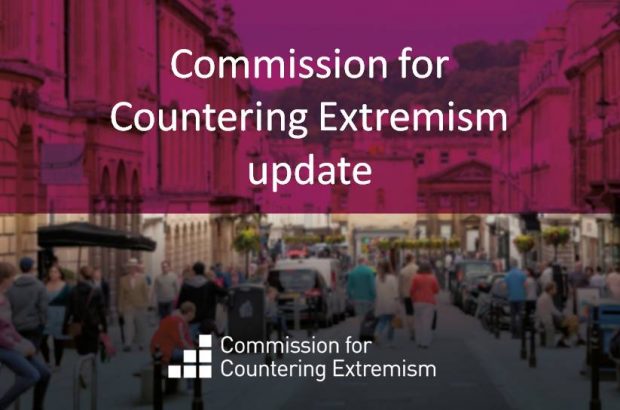
As the Commission has continued its evidence gathering over the past weeks we’ve also reflected on how far we’ve come since our launch in March.
To date, we’ve met over 300 experts and activists and been to over 10 cities across England. We’ve also had a range of positive meetings and visits with people who are countering extremism or are keen to do so, and work towards a more inclusive country. Discussions have been diverse, ranging from personal experiences of extremism, the impact and harm of extremism in towns and cities, and concerns about the lack of support for counter-extremists.
On top of this we’ve had a great deal of constructive debate and fruitful dialogue about the Commission, our work to date and our plans going forward.
The Commission is going to take this opportunity to answer some of the common questions that people are keen to hear about:
Q1: What is the Commission for?
Following the terrible string of terrorist attacks in 2017, the Prime Minister announced the Commission would be established, to help everyone do more to challenge extremism in our society. In light of the continuing threats we face, this continues to be a relevant concern.
In its first year, the Commission will: engage widely and openly on extremism and our shared values across the public sector, communities, civil society, families and legal and academic experts; publish a study into the threat we face from extremism, and the current response; and advise government on the Commission’s future structures, work programme and the appointment of further commissioners.
As well as engaging widely about the threats and challenges of extremism, the Commission also wants to understand how to better promote a positive and inclusive vision for our country.
Q2: What is the Commission’s definition of Extremism?
The Commission are keen to understand the public’s comprehension of extremism. Throughout our engagement, we have found people are able to describe clearly what extremist activity, attitudes and behaviour looks like in their communities; and the harms it is causing.
Before proposing any definition, we want to have a wider, public discussion of what constitutes extremism, and crucially, begin by gathering and analysing a wide range of evidence from government, academics, experts, counter-extremism activists and from members of the public.
People have told us about their confusion over the government’s definition of extremism. We will not be limited by the government’s definition, although it is a useful starting point for discussions. We will explore the usefulness of the government’s definition and consider alternatives.
We recognise this is the beginning of a long process in understanding the trends and phenomena of modern day extremism, and the tactics and objectives of extremists. The Commission has no plans at present to put forward a statutory definition.
Q.3 What is the difference between Terrorism, Extremism and Integration?
Government policy is clearly divided up into three distinct areas: terrorism, extremism and integration. The Counter Extremism Strategy has been in place since November 2015. They recently released an updated Counter Terrorism Strategy (CONTEST) in June 2018, which states that extremism that doesn’t lead to terrorism is addressed by the Counter Extremism Strategy (2015). They also recently concluded a public consultation on a strategy Green Paper on integration.
Two years after the publication of the CE Strategy, however, few people around the country are clear on this separation, or its benefits. People have repeatedly expressed confusion about the government’s definition of extremism, and are unclear who they should talk to about different issues.
The Commission believe a holistic understanding of extremism is required and recognise that there are often grey areas of overlap between integration and extremism; and extremism and terrorism. At the same time a great deal of integration policy and counter-terrorism policy does not fall within extremism. Building the evidence base about extremism will help provide clarity on these important policy areas.
While the Commission’s remit is countering extremism, the Government made clear in our Charter that they are interested in hearing any issues we identified that falls within integration. We are also interested in understanding how we can draw any lessons from the delivery of similar policies, including where relevant, on counter-terrorism.
Q.4 Will the Commission hear evidence on Prevent?
The Commission’s remit is not terrorism, which means it will not be looking at Prevent. Prevent, which is part of the Government’s counter-terrorism policy, is very specifically about safeguarding those at risk of becoming or supporting terrorists.
The latest version of CONTEST (the Government’s counter terrorism strategy, published in June 2018) indicates a shift to a new model of countering terrorism, that leaves the job of countering extremism that doesn’t lead to terrorism to the Counter Extremism Strategy. Yet previous versions of CONTEST and the Prevent Strategy, written before there was a CE Strategy, did commit Prevent to programmes that involved “challenging extremist (and non-violent) ideas”.
We believe we can learn constructive lessons on countering extremism from the delivery of Prevent, and will continue to engage widely. However, we will not be reviewing the Prevent Strategy, or commenting on the effectiveness of Prevent itself in our study.
Recent Comments